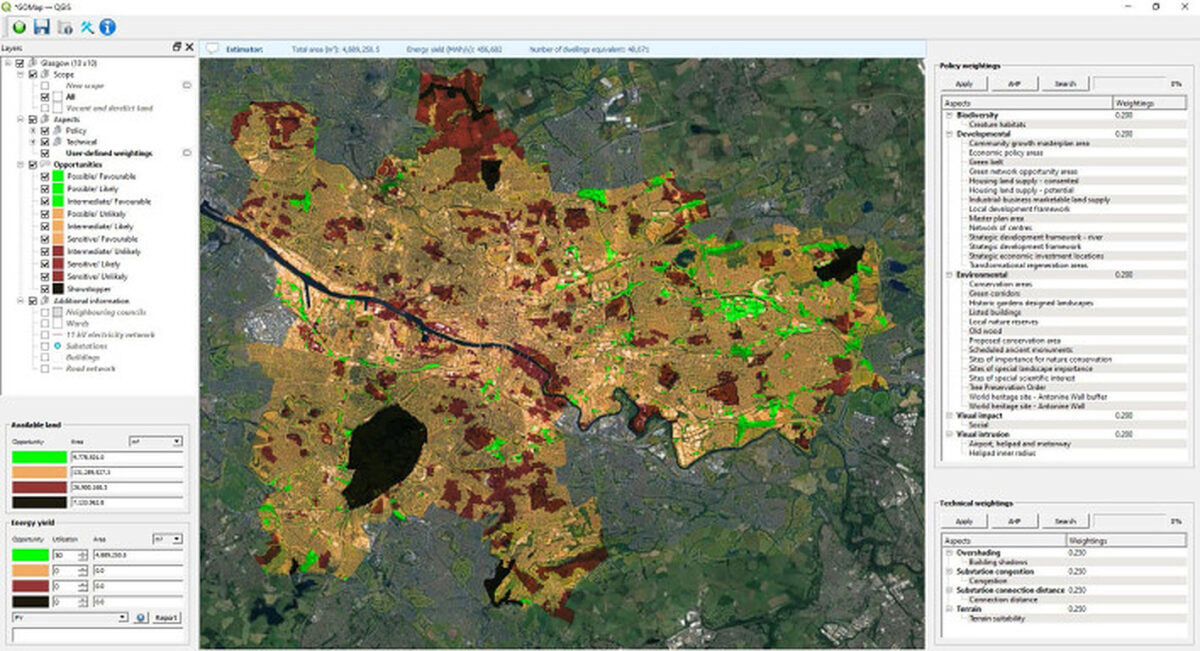Researchers at the University of Strathclyde have created a new geospatial mapping tool that enables developers to identify land for renewable energy development that complies with both policy and technical requirements.
Called Geospatial Opportunity Mapping (GOMap), the new tool is built on the available QGIS framework, which is an open-source cross-platform desktop geographic information system application that supports viewing, editing, printing, and analysis of geospatial data.
“External plugins have been developed specifically for QGIS to tackle varying issues ranging from estimating evapotranspiration and surface air temperature mapping,” the scientists explained. “GOMap was written in Python version.”
The tool is reportedly able to determine the number of rooftop or ground-mounted solar projects that can be deployed in a given area, as well as the maximum number of wind turbines within a site considering site geometry and the minimum distance required between each turbine. It can also identify buildings that can be connected to a district heating network within a specified distance.
Popular content
The tool also takes into account high-resolution information from both the local authorities and local utility companies. “GOMap has been designed in collaboration with two such bodies and is equipped with identifying sites for renewable energy deployment based on comprehensive and detailed spatial information,” the researchers said. “It also provides a template for users to generate opportunity maps for other cities or areas of interest.”
The British group also said the new tool is intended to enable decision-making processes and collaboration between city planners and utility specialists. It was introduced in the study “GOMap: A Python-developed GIS opportunity mapping tool for renewable energy technologies,” published in SoftwareX.
This content is protected by copyright and may not be reused. If you want to cooperate with us and would like to reuse some of our content, please contact: editors@pv-magazine.com.



1 comment
By submitting this form you agree to pv magazine using your data for the purposes of publishing your comment.
Your personal data will only be disclosed or otherwise transmitted to third parties for the purposes of spam filtering or if this is necessary for technical maintenance of the website. Any other transfer to third parties will not take place unless this is justified on the basis of applicable data protection regulations or if pv magazine is legally obliged to do so.
You may revoke this consent at any time with effect for the future, in which case your personal data will be deleted immediately. Otherwise, your data will be deleted if pv magazine has processed your request or the purpose of data storage is fulfilled.
Further information on data privacy can be found in our Data Protection Policy.